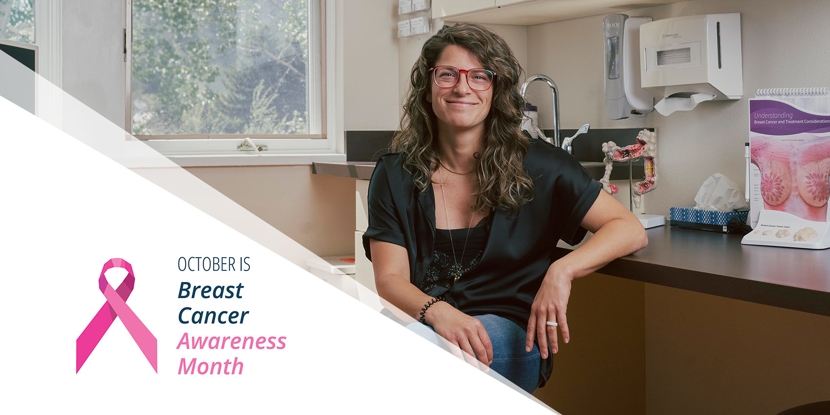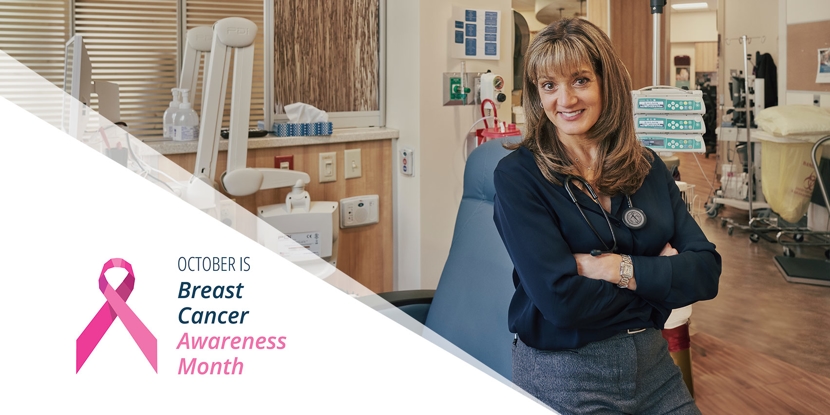Cancer Prevention 101
- Category: Cancer Care
- Posted On:
- Written By: St. John's Health
.jpg)
Reducing Your Chances of Developing Cancer
Cancer is a frightening word for most people and can have life-altering consequences for many. The good news is that you can reduce your risks through daily actions, and successful treatment is possible with early detection.
The health experts at St. John's Health are here to share important information regarding risk factors, screenings, and lifestyle changes that can help you prevent cancer:
Know Your Risks
One in three people will develop cancer at some point in their lives. While it’s true that anyone at all ages can form cancer, there are some who are at a higher risk. It’s important to know how your age, health, and family history play into your risks for specific types of cancers.
The following are some of the most common forms of cancer in adults:
- Breast cancer is the most common cancer in women, accounting for nearly 30% of new cases each year.
- Skin cancer is the most common cancer in men and women, accounting for about 40% of all new cases each year.
- Lung cancer is the second most common cancer in both sexes, accounting for about 25% of new cases each year. It's also the leading cause of cancer death.
- Colorectal cancer is the third most common cancer in both genders, accounting for about 11% of new cases each year.
- Bladder cancer is the fourth most common cancer in men and women, accounting for about 11% of all new cases each year.
Additionally, the following circumstances can increase your risk of cancer:
Family History
If you have a close family member like a parent, sibling, or child who has previously been diagnosed with cancer, your risk is higher than those of average risk. It’s important to keep an accurate record of your family history to share with your doctor, so they can help manage your health.
Age
Age is one of the most important risk factors when it comes to various health issues, including cancer. As we age, our cells can get damaged over time, sometimes leading to cancer.
Lifestyle Choices
The way you live can affect your risk of developing a variety of chronic health conditions — from heart disease to cancer. Some of these lifestyle choices that increase your risk of certain types of cancer include:
- Leading a sedentary and inactive lifestyle.
- Excessive alcohol consumption.
- Smoking or using tobacco products.
- Eating an unhealthy diet.
Stay Up-to-Date With Your Screenings
Early detection can drastically improve your chances of beating cancer, which is why it's crucial to get regular health screenings. Even if you don't think you are at risk, there are a number of screenings your doctor may recommend depending on your family history, age, and other variables. Some of the most common cancer screenings include:
Mammograms
The US Preventative Service Task Force, a leading organization for screening guidelines, recommends woman ages 50-74 get mammograms every 1-2 years. Women 40-50 with increased risk for breast cancer should consider starting screening earlier. You should discuss this with your provider.”
At St. John's Health, we offer the option for women 40-44 years to have a mammogram screening every year.
Self-Breast Exams
Self-breast exams are another important way to check for breast cancer. Women of all ages should be familiar with how their breasts usually look and feel so that they can report any changes to their doctor. Additionally, women 20 and older should perform a self-breast exam at least once a month.
Pap Smears
Pap smears are a screening test for cervical cancer that involves collecting cells from the cervix. Women should start pap smears at age 21, and they should be done every three years until the age of 29. Women ages 30 and up can continue every three years or have Pap/HPV Cotest every five years. These tests can also screen for other conditions such as HPV and changes in the cervix that could lead to cancer.
Colonoscopies
Colonoscopies are screening tests for colon cancer that involves inserting a camera into the rectum and colon. Colonoscopies should be repeated every 7-10 years if it is normal, or sooner if you have polyps or an abnormal colonoscopy or high risk for colon cancer.
Colonoscopies can also look for other conditions such as polyps, which are growths on the colon lining that could lead to cancer. Colonoscopies are considered the ‘gold standard’ or preferred test for colon cancer screening. But for patients who are unable to have a colonoscopy, there is a stool test available called Cologuard that may be an alternative. You should discuss these options with your provider.
Prostate Exams
The US Preventative Services Task Force recommends men ages 55-69 discuss the options for prostate cancer screening with their primary provider. Men who are at increased risk, including men who have a family history of prostate cancer in their father or sibling, may need to start screening earlier.
Genetic Testing
For some patients with a strong family history of cancer, or other risk factors, there are some new genetic screening tests that are now available to screen for genes that may increase your risk of cancer. These tests require a provider order and are not appropriate for all patients. You should discuss if these tests are appropriate with your provider.
Low-Dose Computed Tomography (LDCT)
Low-dose computed tomography (LCDT) is a type of X-ray used to screen for lung cancer. Doctors recommend that people aged 50 to 80 who have a history of smoking should get an LDCT every year. Those with a family history of lung cancer or other risk factors may need to start screenings earlier.
Make Lifestyle Changes
From leading an active lifestyle to quitting smoking and wearing sunscreen, you can make plenty of daily choices to reduce your risks of cancer. For more information, speak with your doctor directly.
Fortify Your Diet
When it comes to supporting various organ systems of the body, building a balanced diet is a daily action you can take to prevent cancer. According to the American Institute for Cancer Research, a combination of vegetables, fruits, whole grains, beans, and other plant foods helps to lower the risk for many cancers. Additionally, individual minerals, vitamins, and phytochemicals also demonstrate anti-cancer effects.
Some of the best options to add to your diet include:
- Apples
- Asparagus
- Blueberries
- Broccoli
- Brussels sprouts
- Carrots
- Cauliflower
- Cherries
- Coffee (in moderation)
- Dry beans and legumes
- Flaxseed
- Garlic
- Grapefruit
- Grapes
- Kale
- Raspberries
- Spinach
- Squash
- Strawberries
- Tomatoes
- Walnuts
Processed meats, alcohol, and artificial sweeteners should all be limited.
Read More: Your Guide to Building a Better Diet
Primary Care in Jackson, Wilson, and Teton County
Cancer screenings are one of the most vital parts of preventive health care, as they can help detect cancer early when it is most treatable. Visit our website to find a primary care provider to discuss what screenings options are available.



